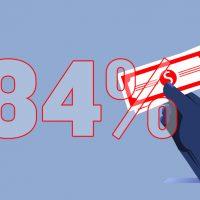Rent is due in four days, evictions resume next month, and much of New York is still out of work.
Gov. Andrew Cuomo says he’s working on it.
“We have a number of options” for when the eviction moratorium expires in June, Cuomo said last week. That’s a change from late March, when he said the eviction ban took care of the “rent issue.” It has since become clear that many tenants won’t be back on their feet any time soon, and no specific policy is in place to forgive or defer commercial mortgage or rent payments.
But what are Cuomo’s options? He would not elaborate, but even with greatly expanded executive powers, there are limits to what the governor could do.
Some New York legislators would have Cuomo extend the eviction moratorium, which has been in place statewide since March 15. That would assure tenants they will not be evicted for non-payment, but threatens landlords’ ability to pay their mortgages. An eviction ban also does nothing to alleviate the financial burden in the long term; it just postpones the consequences of not paying.
While renters and landlords anguish over May 1 bills, property taxes in New York City are due by July 15. Those levies could be reduced, postponed or even eliminated for the duration of the coronavirus crisis, but most property owners have already set aside money for taxes. Standard commercial mortgages require them to be deducted ahead of time and placed in an escrow account.
Read more



And for cities whose budgets are already under pressure, reducing property taxes would be a hard sell because they make up such a large portion of tax revenue. In New York City, they are about one-third — and the city is depending on that revenue. The Independent Budget Office predicted the pandemic will cost New York City $14 billion in tax revenue over the next three years, without a significant decline in property tax collection.
Elsewhere in New York state, property taxes make up an even greater share of local tax revenue — 43 percent in 2018, a report from State Comptroller Thomas DiNapoli showed.
Scores of state legislators have called for federal funding for housing vouchers to keep landlords and renters afloat. State Sen. Brian Kavanagh introduced a bill that would create an emergency fund to pay for rent that exceeds 30 percent of monthly adjusted income. Legislators called on the federal government to provide $10 billion to New York for the rental subsidies, but the federal relief package has instead focused on aiding small businesses — and some larger ones, too. Relief for state and local government might not materialize: Monday morning, President Donald Trump criticized “poorly run” states and cities looking for “bailout help.”
Early on in the crisis, Cuomo issued an executive order to compel lenders to allow homeowners to put off their mortgage payments. (The executive order has limitations — New York can only regulate state-chartered banks.) The same could be done for commercial mortgages — which cover apartment buildings.
Even if mortgage servicers were to allow forbearance, postponing payments has its own problems. Requiring a balloon payment at the end of the postponement period could lead to a wave of foreclosures. New York Attorney General Letitia James wrote letters to the CEOs of 35 banks — including J. P. Morgan Chase, Wells Fargo, Buffalo-based M&T and Quicken Loans in Detroit — to ask servicers to waive late fees and place loans in forbearance automatically if a payment is missed. James also asked lenders to push bills back to the end of the mortgage.
Cuomo could also look north. While the U.S. has responded to the impact of the coronavirus on the rental market with a patchwork of housing policies, Canada’s Prime Minister Justin Trudeau announced Friday that his government would offer forgivable loans to commercial landlords for 75 percent of monthly rent, in exchange for a 75 percent reduction passed on to tenants and an eviction moratorium. That’s not quite the blanket cancellation of rent and mortgages that tenant advocates in New York have demanded, as they prepare to launch mass rent strikes on May 1.
The governor could also do nothing, in which case many tenants would likely continue to pay rent. Professionals able to work remotely and people with sufficient savings can pay, and others will get by with increased federal unemployment benefits through July 31 and the one-time stimulus checks from the Treasury.
But many lower-income renters who are out of work will not be able to pay, and others may not pay if they worry they will soon lose their jobs. Those who work off the books, including day laborers and undocumented workers, and those whose wages and hours are just reduced don’t receive unemployment benefits. Undocumented workers also will not get stimulus checks.
Rents collected in April illustrate the uneven effect of the pandemic: one industry group’s survey of 11.5 million apartments reported near-normal collection levels, while one of New York City’s largest multifamily lenders said collections in rent-stabilized apartments were just half of what they normally are.
